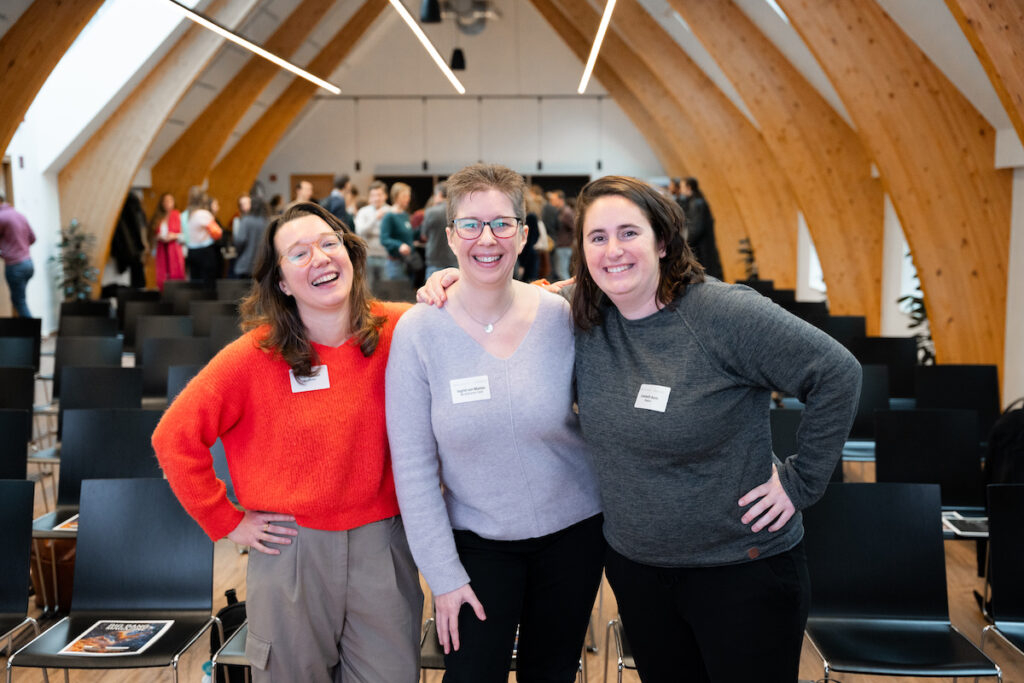
A winning lab website
Does your lab have a website? Are you happy with its content and look? Is it up to date? Is it effective?

When I made the move from full-time researcher to full-time research communicator, I was looking for a local conference and meeting where I could meet “my colleagues”—other science communicators with whom I could share new ideas or discuss problems.
While there are fantastic opportunities for young researchers to dive into science communication, I was wondering where I could meet the bright minds behind these initiatives. I found well-organized professional associations for science communicators and for science journalists in the Netherlands, but a similar community here in Belgium didn’t seem to exist.
I decided to take matters into my own hands and organized a first – online – networking meeting for science communicators.
From its first online edition in 2020, the team and the ambitions grew. Ingrid van Marion and Elisa Nelissen joined the organizing committee, and together we set out to elevate and professionalize science communication, on three different fronts: research, education, and practice.
Elisa Nelissen, who is pursuing a PhD focused on the circulation of science news to and within Flanders, wants science communication research to grow into a separate academic discipline in Belgium. This means bringing together existing patches of expertise that are scattered across different research centers in communication science, linguistics, translation studies as well as the scientific disciplines that study how their own field is communicated.
Elisa Nelissen: “We hope to create and strengthen connections between researchers, so that they can exchange ideas, methodologies, and findings. With each other, but also with all other actors in this ecosystem. Getting diverse feedback from all layers of society is crucial for solid research that can then turn into evidence-based practice.”

Compared to the UK, the Netherlands and Germany, Belgium isn’t only lagging behind on the research front, but also when it comes to education, knows Ingrid van Marion. She holds an MSc in Science Communication from Delft University of Technology and has been active as a researcher in science communication in both The Netherlands and Belgium.
Ingrid van Marion: “Education is the cornerstone of progress. To truly advance science communication, we must invest in nurturing the next generation of communicators. There is no formal MSc in science communication in Belgium. The patchwork of existing trainings and workshops, though vital, are a symptom of the fact that many still treat science communication as a nice add-on, not an integral part of a scientists’ career. “
“Science communication is also so much more than outreach, and academic education in this field can add value to many different professional domains; from science journalists to policy makers, from technical application developers to sustainability consultants.”
It’s no surprise that more and more science communication professionals are active outside of the traditional communication teams of universities. From podcasts to festivals, the formats are diversifying and so are the organizations behind them. From non-profits to freelancers or agencies, science communication is no longer the playing field of the marketing and comms departments of universities or companies… This trend hasn’t escaped the attention of policymakers either.
The science communication landscape is changing. Outreach is increasingly important for funding bodies and luckily the call for more formal recognition of science communication efforts is growing.
With BE SciComm, we’d like to make a change. By connecting educators, sharing best practices, and advocating for the integration of evidence-based insights, we aim to foster a community of continuous learning and make a lasting impact on how science is communicated and understood.
Networking is key here. Next to the yearly meeting, we want to host smaller events and workshops that bring professionals together. We’re creating bridges between academia and practice, ensuring an integrated approach to science communication.

Does your lab have a website? Are you happy with its content and look? Is it up to date? Is it effective?

Is your lab on social media? Do you struggle to find inspiration or time to post? Do you want to increase your reach?

Join this *free* breakfast session to craft a convincing resume and motivation letter that not only show what you’ve achieved but also reflect your passion for research and how you fit the prospective lab, grant, or organization.


Get notified about new articles, Tips & tricks and other opportunities.